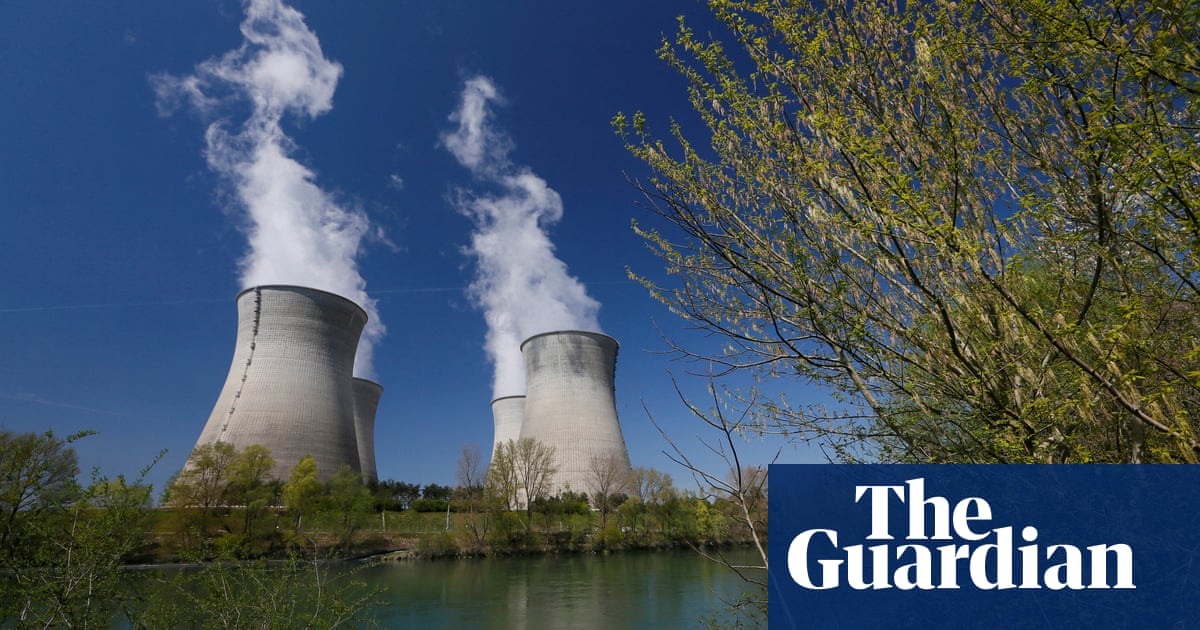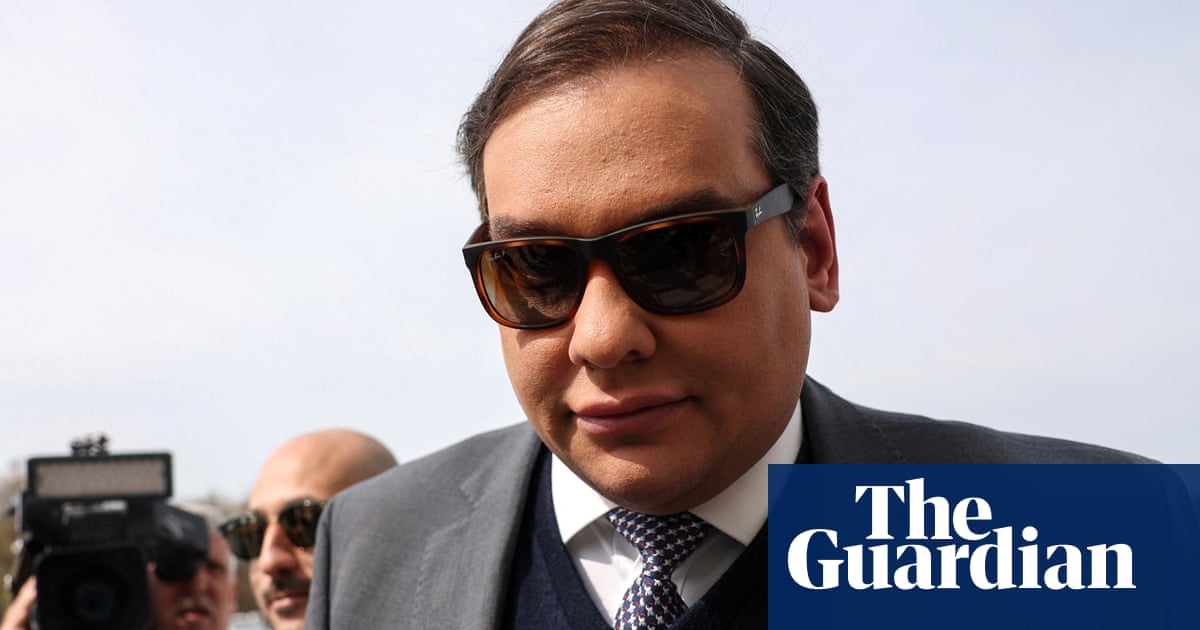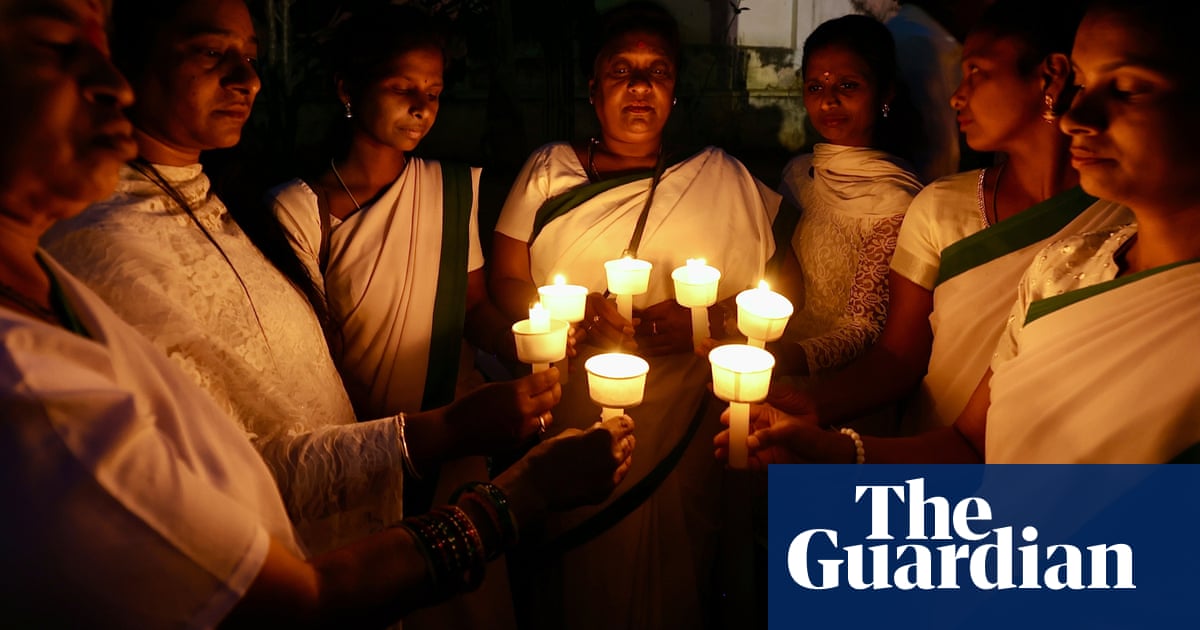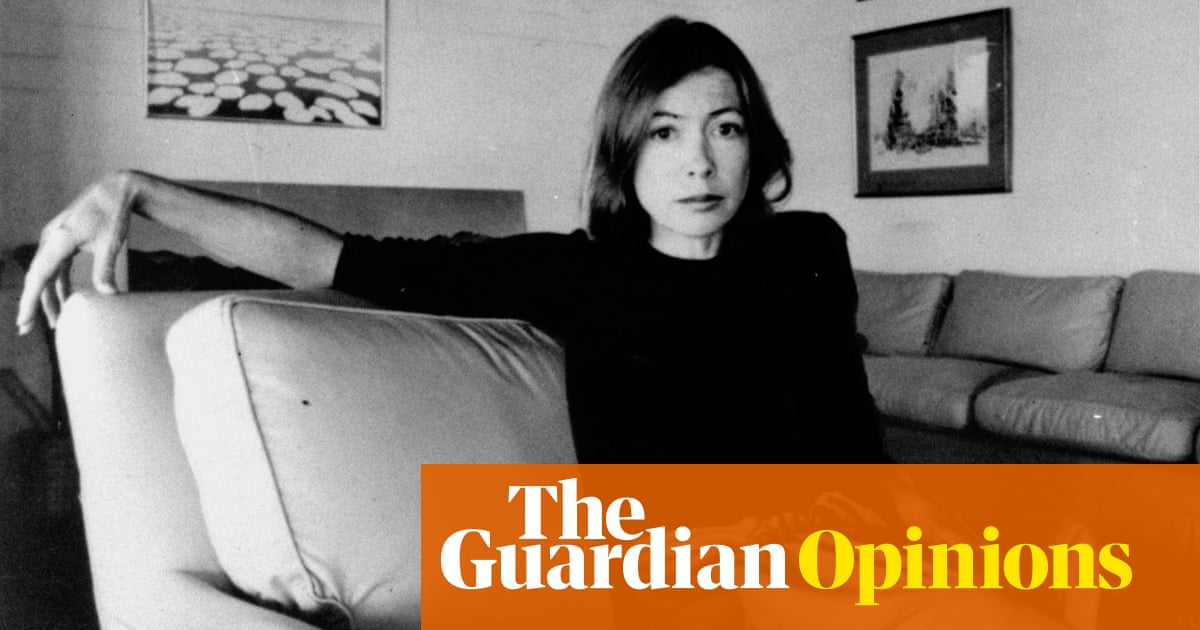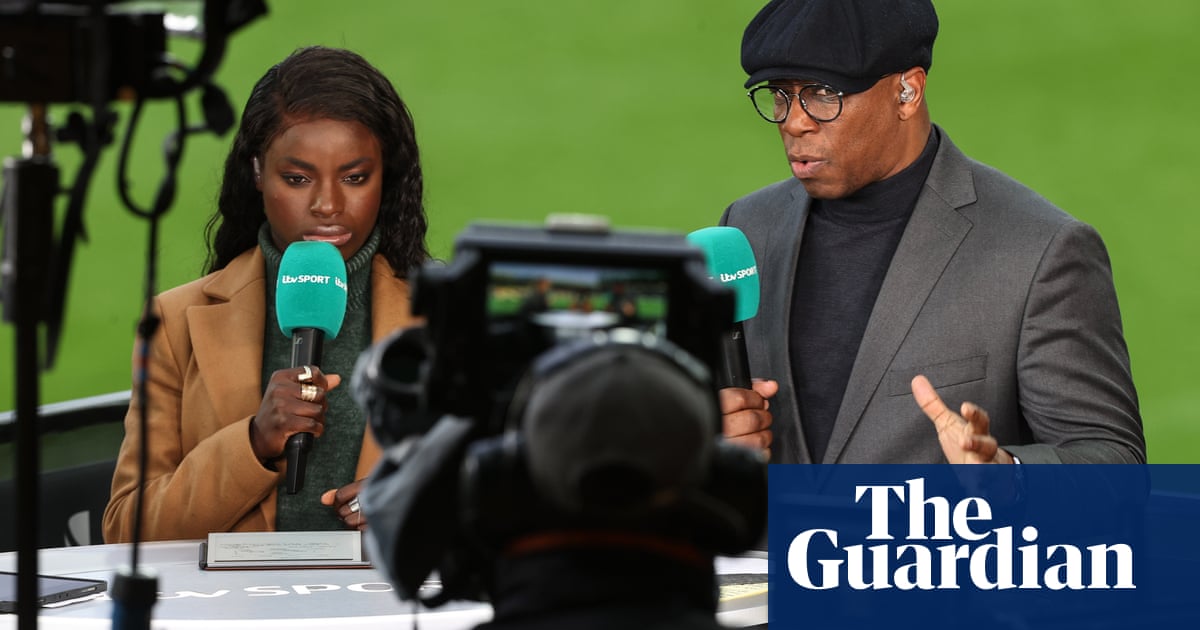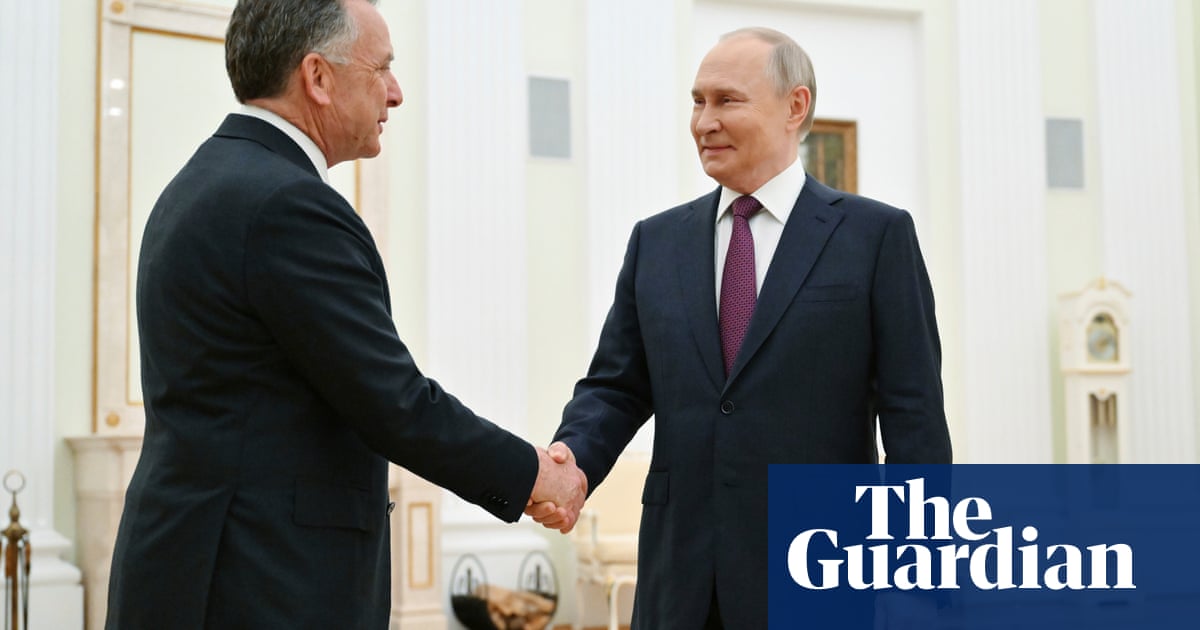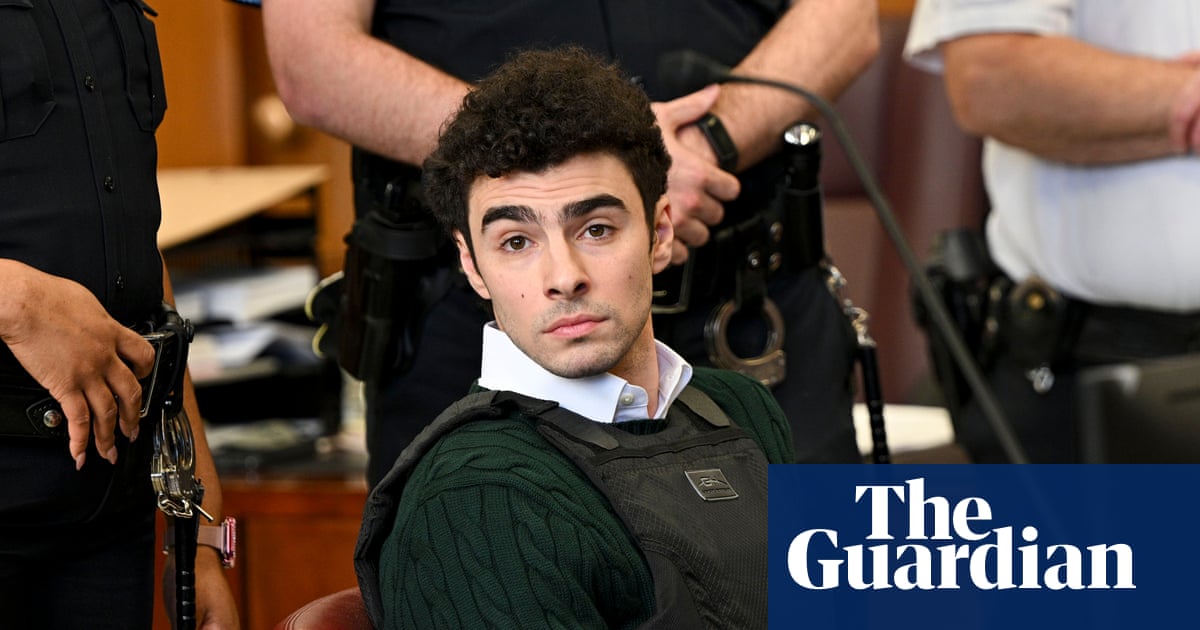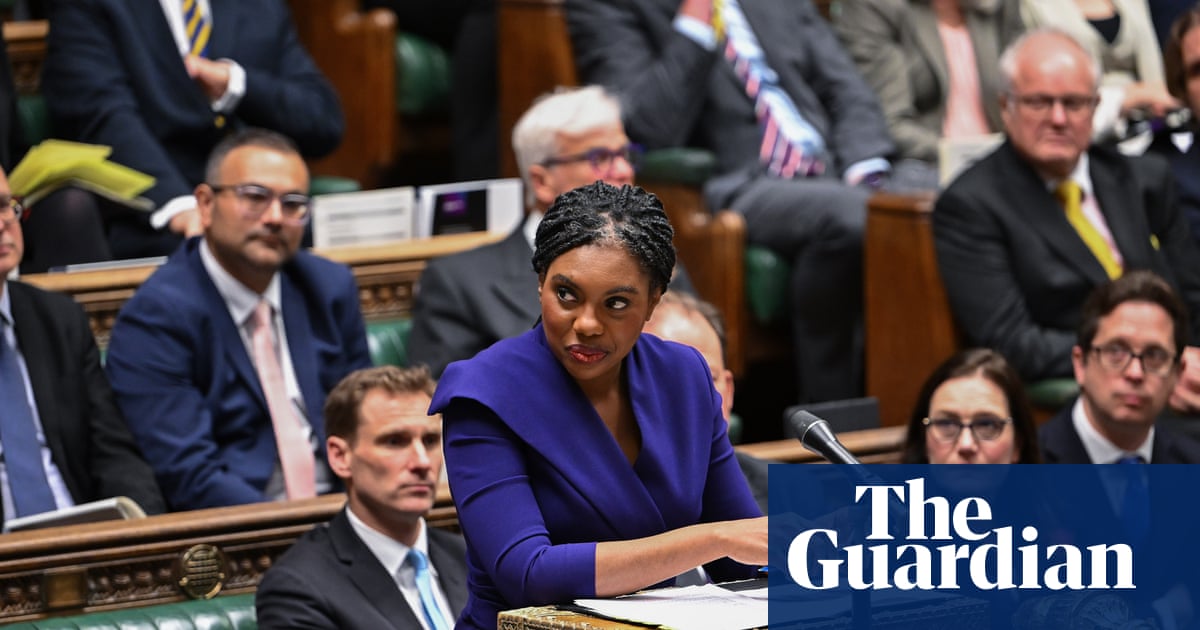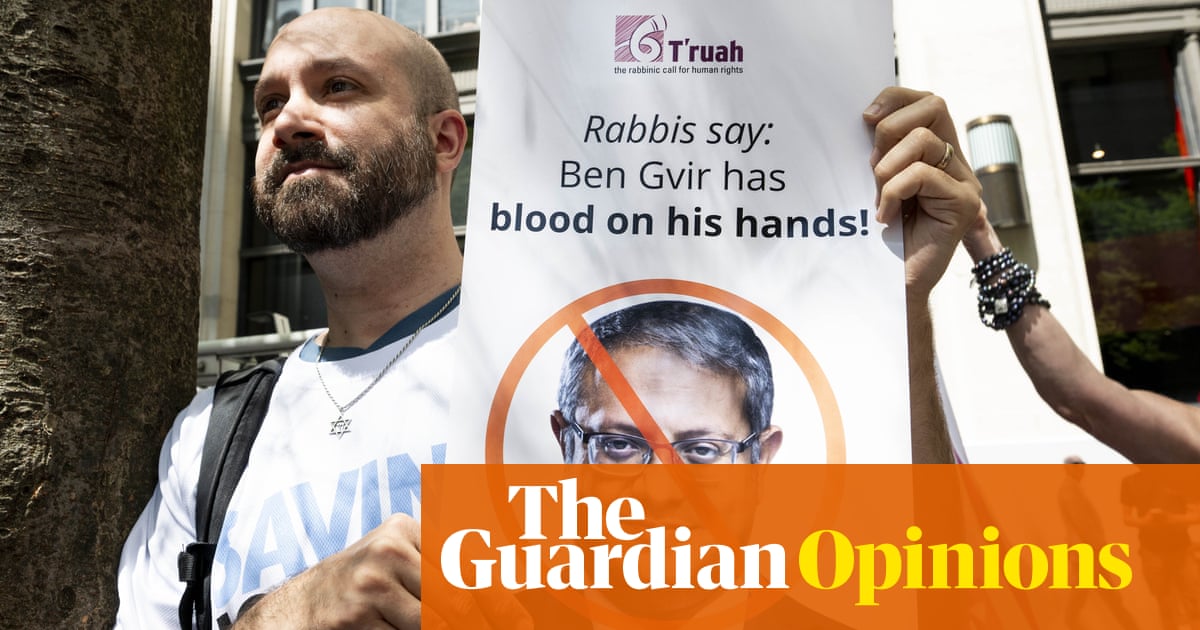Kristalina Georgieva’s favourite film, the International Monetary Fund boss told the audience at a packed panel event in Washington on Thursday, is Tom Hanks’s cold war romp Bridge of Spies.
In one of the stranger digressions in a frequently strange week, Georgieva recalled the moment when Hanks’s character, a US lawyer, tells the Soviet spy he has been appointed to defend that he will probably be executed. “You don’t seem alarmed,” Hanks says to him; to which the spy – played by Mark Rylance – replies, “Would it help?”
Georgieva mentioned the vignette to underline the fact that this week’s spring meetings of the IMF and World Bank were not swept up in panic, despite the mayhem emanating from the Trump administration.
Instead, the reaction to the uncertainty of many of the hundreds of policymakers present has been a kind of stunned resignation.
Trump was barely mentioned by name at the scores of public events where policymakers chewed over how to respond to the challenges thrown up by his chaotic tariffs. Georgieva spoke of “major trade policy shifts” which had “spiked uncertainty off the charts”.
Central bankers earnestly discussed how best to portray today’s heightened uncertainty to the public. Perhaps, mused the Bank of England’s deputy governor Clare Lombardelli, they could learn from the way medics communicated during the Covid pandemic.
And the IMF suggested regulators keep a close watch on economic institutions, warning of “further shocks, corrections of asset prices, and tightening of financial conditions”.
Yet as one UK official privately acknowledged, it often felt as though the real action this week was happening not in the IMF – the spiritual home of the “Washington consensus” of free-market neoliberalism – but up the road at the White House, where what remains of that consensus was being torched.
Away from the public eye, policymakers at the IMF speculated about who is up and who is down in the administration, and what that may mean for its direction.
Trump’s apparent softening of his stance earlier this week on sky-high tariffs against China, and insistence he is not about to sack Jay Powell, the chair of the Federal Reserve, stoked hopes that the relatively more moderate Treasury secretary, Scott Bessent, has a stronger influence than the president’s tear-it-all-down trade adviser, Peter Navarro.
It appears unlikely to have been as a result of the IMF’s warning on Tuesday of a “major negative shock” from the tariffs.
Instead, many observers pointed to the influence of the mighty bond markets – the agents of Liz Truss’s destruction. Even after markets recovered some ground this week, bond investors still appeared to be demanding an additional risk premium to hold US Treasuries, usually considered the ultimate haven.
With Trump’s administration hoping to drive down Treasury yields – and hence the interest rate on the monster US debt-pile – it is likely to be this, rather than moral suasion from the world’s finance ministers, that sways him in the coming weeks and months.
Indeed, there were signs everywhere in Washington that policymakers are keen to show they accept aspects of the administration’s worldview.
Rachel Reeves, who was to lobby Bessent on tariff exemptions for the UK, told guests at a drinks reception hosted by the British ambassador, Peter Mandelson, that she shared some of Trump’s concerns about persistent trade deficits – if not his approach to resolving them.
“There’s been a feeling in my country, and in America and in many other developed countries, that the system we have today delivers for some but not for all, and jobs have been hollowed out in some sectors of the economy,” the chancellor said. “It does matter where things are made and who makes them, and we can’t be agnostic or naive about that.”
Meanwhile, the IMF and World Bank reined in their rhetoric about how they see their role, even before Bessent himself accused them of “mission creep” in a speech on Wednesday. He claimed the IMF spent too much time on “climate change, gender, and social issues” and that the World Bank expected “blank checks for vapid, buzzword-centric marketing”.
after newsletter promotion
Despite his strong words, there was a sigh of relief at both Bretton Woods institutions – based in Washington, with an oversized role for the US – that the Trump administration did not want to quit them altogether. Bessent suggested they had “enduring value” – as long as they don’t overstep their core tasks.
Accordingly, both the World Bank president, Ajay Banga, and Georgieva framed their role in every public utterance as about jobs, growth and stability. One politician attending described Banga admiringly as “an operator”.
A longtime observer of the institutions, Prof Richard Kozul-Wright, of Soas University of London, said the change in emphasis was stark. “I’ve found it quite shocking, how craven they can be: six months ago they were going to save the planet,” he said.
Bessent suggested he wanted to see the IMF acting on some of the White House’s concerns about the global economy – including what it sees as excessive currency depreciation, and a failure by economies including China to stoke sufficient domestic demand: the latter a widely shared diagnosis among experts.
But Kozul-Wright said the Bretton Woods institutions, which have to answer to all their members, were ill-fitted for the task. “They can’t be an overt mouthpiece for the Trump agenda,” he said.
While the US president has been smashing up the global trading system, and rocking the world’s financial architecture in the process, other pillars of the Washington consensus seemed as solid as ever this week.
Georgieva lavished praise on Javier Milei’s government in Argentina, with which the IMF recently agreed a massive $20bn support package, for its drastic public spending cuts and agenda of slashing red tape.
She proudly pinned on a small badge featuring Milei’s trademark chainsaw, handed to her on stage by the country’s minister of deregulation, Federico Sturzenegger, who had just finished a lengthy digression about overzealous US regulation of watermelon exports.
As if to emphasise how fleeting any hopes of calm may be, Trump gave a defiant Time interview as policymakers prepared to leave Washington this weekend, saying he would consider it a “total victory”, if tariffs were still as high as 20% or even 50% in a year’s time.
With his punitive paused “reciprocal” tariffs still hanging over the global economy, IMF delegates will take home with them a sense of foreboding for what lies ahead.

.png) 4 hours ago
6
4 hours ago
6
